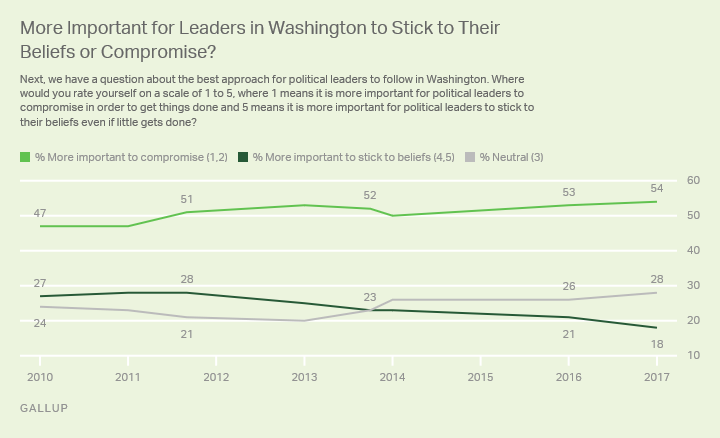Gone Viral
Mar. 22nd, 2021 12:17 pmI haven’t posted anything about the Covid-19 pandemic other than one brief update at its onset. Now that our lockdown has spanned a full year, I should probably document how it’s been.
 Our active social life |
Although it’s not as if I haven’t written about it… When the virus was two months old, I had an update ready to publish; but with the pandemic story continuing to evolve each week, we never reached a good point to stop and summarize.
Six months in, I revisited that draft and added a framing story, showing how our lives had evolved from pre-Covid, to onset, and then to longer-term steady-state. But that too never saw the light of day.
Now it’s been a year, and I still don’t feel I can do the subject justice. On one hand, what little I have to say seems like the mundane, everyday trivialities of spending a year as a shut-in.
On the other hand, it’s difficult to put the stress and unease into words that convey what it’s been like, knowing that outside our 1,200-square-foot apartment a quarter billion people have contracted this novel, insidious disease, leaving 3 million people dead in its still-reverberating wake.
So let me guide you through a year of life under the pandemic, chronologically, step by step. I apologize in advance for any repetitiveness.
For the full experience, you might choose to begin with my initial March 2020 blogpost entitled “Miles Away From Ordinary,” which describes our outlook at the time of the initial lockdown.
Two months later, in mid-May 2000, I wrote the following:
We’re now ten weeks into our Coronavirus quarantine. How has it gone?
Over two months, I’ve gone outside for one grocery run, three long walks, three short walks, and that’s about it. Outdoor cycling hasn’t happened at all, save for one brief excursion to observe the Ride of Silence. We haven’t picked up restaurant food or had any delivered. I’ve had to defer my plan to recreate my family’s spaghetti sauce due to ingredient shortages and lack of freezer space, but have happily added burritos to my cooking repertoire.
After taking a 10 percent hit to my net worth, I’m about 50% recovered financially. I’m surprised that the stock market bounced back so readily and hasn’t re-tested its March lows. Aside from stocks, I’ve happily got a couple CDs earning a healthy 2.2% and 2.8% that don’t mature for another year; a rare victory over interest rates which have dropped to zero.
Given the widespread economic damage done during the lockdown, I fully expect more pain to come, and a drawn-out recovery, with some sectors (e.g. retail, restaurants, live sports & entertainment, travel & tourism) having to make radical changes before consumers will return.
There’s growing calls to end the lockdown and allow businesses to open, which doesn’t make any sense to me. Two thousand Americans are dying every day due to Covid-19. The virus has killed more Americans in the past two months than all U.S. casualties in the entire Vietnam War. And the death toll is projected to increase to 3,000 Americans per day by June.
Everyone is relieved that we have managed to “flatten the curve”, ensuring that peak simultaneous cases don’t overwhelm our medical capacity and giving researchers time to work on a vaccine. But no one seems to have picked up that flattening the curve also means extending its duration, lengthening the period of time it might take for the overall population to become exposed to the virus and develop herd immunity.
The basic scenario hasn’t changed one bit in the past two months. There are more than a million carriers walking around our country — with thirty thousand more infected every day — and those are only the ones with obvious symptoms! We still have no treatment and are months-to-years away from a preventative vaccine, and we’re only testing a microscopic subset of the population. We have no idea whether individuals who survive gain future immunity to Covid-19, but there's anecdotal evidence that people can indeed become re-infected.
Yet people seem to think the danger has passed and we should relax the restrictions that have successfully limited the virus’ spread so far. I don’t care if you’re dipping into your savings or feeling “quarantine fatigue”; why did we order people to stay at home in the first place if we’re just going to turn around and rescind that order at the precise moment when the infection rate and death count are both at their peak?
To those protesting against our nation’s efforts to reduce the impact of the pandemic, I say: Every generation of Americans has had to make sacrifices to defend this country; but today’s prima donna “patriots” are so soft and self-absorbed that they can't even handle being asked to go home and sit tight for a few weeks. To those clamoring for bars and restaurants to re-open I say: you people are shortsighted, selfish, and pathetic.
Irrespective of what our government advises, I plan on being extremely conservative in resuming normal life. I’m not itching to hit the local restaurants, visit friends and relatives, see any shows, or travel. While I miss biking outdoors, I don’t want to ride anywhere near other people, especially anyone who hasn’t taken the danger seriously.
My goal, more than anything, is to avoid this virus as long as I can, in hopes that eventually progress will be made toward detection, treatment, and prevention. But that hasn’t happened yet, and I’m not willing to wager my life that the danger has passed, especially when evidence clearly shows quite the opposite.
As you can see, I was pretty skeptical about our American exceptionalism right from the start. Back in the early days when grocery stores couldn’t stock toilet paper, ginger, baking flour, or yeast, and when meat purchases were rationed.
That was in mid-May. Time passed, but the six-month anniversary of the outbreak prompted me to revisit the topic. So I wrote the following fragment in late August and early September:
In May I wrote — but never shared — a little blogpo about how things were going two months into the Covid-19 lockdown. Now here we are six months into a pandemic, and the situation has evolved slowly. Perhaps now it’s time to actually share my thoughts, before the whole episode blows over and is forgotten.
The initial phase went pretty well for the most part. Being fully locked down actually wasn’t a huge change from our normal winter lifestyle. Inna stopped her already-rare visits to her downtown office, restaurant food was declared off-limits, and our grocery trips became less frequent, meticulously planned, and considerably more expensive. I added burritos to my cooking repertoire.
Our social lives have been limited to a tiny number of masked porch visits with friends. The two local meditation groups I sometimes lead both went online, and my former Kalyana Mitta (spiritual friends) group from Boston — who are now spread all across the United States — reconstituted itself on Zoom.
Through the end of May, cycling was 98% indoors, but I got outside more over the summer, though only for short rides. With all my cycling events cancelled, I’ve mimicked most of them indoors, on Zwift. You can read all the details about how that’s gone on my cycling blog. And I even registered as a virtual rider on this year’s Pan-Mass Challenge!
Financially, we’ve been fine. Inna’s job remains secure. Savings and investments took an initial 10% hit, but have more than fully recovered. With interest rates pegged at zero, I’m very happy to have a chunk of cash earning 2-3% in CDs; but I’ll need to figure out what to do next spring when they mature.
By then my lack of faith in Americans was fully proven out, leaving no need to make further dire predictions. I was mostly occupied with Inna and my domestic situation, which had reached a sustained level of quote-normalcy-closequote.
Which brings us to March 2021, the anniversary of our Covid-19 lockdown. What is there to say now?
Winter was hard. No social contact with anyone. No outdoor cycling at all, not even occasional walks. Just a solid five months of staring at these same unchanging apartment walls.
As if the pandemic itself weren’t enough to deal with, 2020 also brought us the murder of George Floyd and subsequent Black Lives Matter protests and rioting, severe Australian bushfires, Prince Harry renounced membership in the British royal family, there was the sudden appearance of murder hornets, the horrific Beirut explosion, an economic war with China, Brexit finally happened, a major Russian cyberattack, oil prices crashed and actually went negative, the stock market pulled back, fanatical right-wing lockdown protestors stormed the Michigan state capitol, and the historic Aricebo radio telescope collapsed. Oh, and notable deaths included Kobe Bryant, Little Richard, Alex Trebek, Ruth Bader Ginsberg, and John Lewis.
American “exceptionalism” was on full display. Over the winter holidays, infections soared and the body counts rose to 3,000… then 4,000… then 5,000 per day (and 880,000 per day globally). And still people disregarded pleas to wear face masks in public and called for businesses and schools to re-open.
The sitting President of the United States was impeached for asking the Ukraine to investigate his opponent, then got Covid himself, and had protestors at a church teargassed so he could pose for a photo op, blasphemously holding a Bible.
America’s Presidential election was pathetic and terrifying. We had the most divisive, violent election in 50 years, followed by open insurrection and the occupation of the US Capitol by domestic terrorists incited by an openly lying lame duck President in direct violation of his Constitutional oath. But despite all this, he was vociferously defended by his morally bankrupt political party. My country: the shitshow.
Following the overdue removal of our virus- and election-results denying “leader,” we are finally producing one conventional and two novel messenger RNA vaccines which are presumably extremely effective. We’re still in the early days of distribution, but people are getting inoculated, which is the thread of hope that we’ve all been clinging to since this ordeal began.
So after a long, hard, dreary, stressful winter, the impending return of spring comes with some long-awaited, tender shoots of hope.
Inna will be fully vaccinated this month. Unfortunately I'll have a much longer wait, because I don’t meet any special age, co-morbidity, or career role qualifications.
And the weather should start permitting properly-masked and -distanced social contact, as well as solo outdoor cycling... although don’t ask about my bike and the continuing complete unavailability of both new and replacement parts!
So there’s a little bit of hope that this spring we might be turning the corner. It’s still overshadowed by the knowledge that even fully vaccinated it’ll be another year before life gets back to anything “normal”.
It’s still hard to write about. For an entire year, our lives have been reduced to the most mundane, uneventful commonalities, which makes for a pretty boring read.
And it’s still just as hard to articulate the lingering, perpetual stress, discomfort, and unease of living with this pandemic. Getting a haircut or an eye exam and new glasses still seem like remote, almost inconceivable luxuries. And bike parts… well, as I said, don’t get me started about that.
And still, we endure. Be well!




